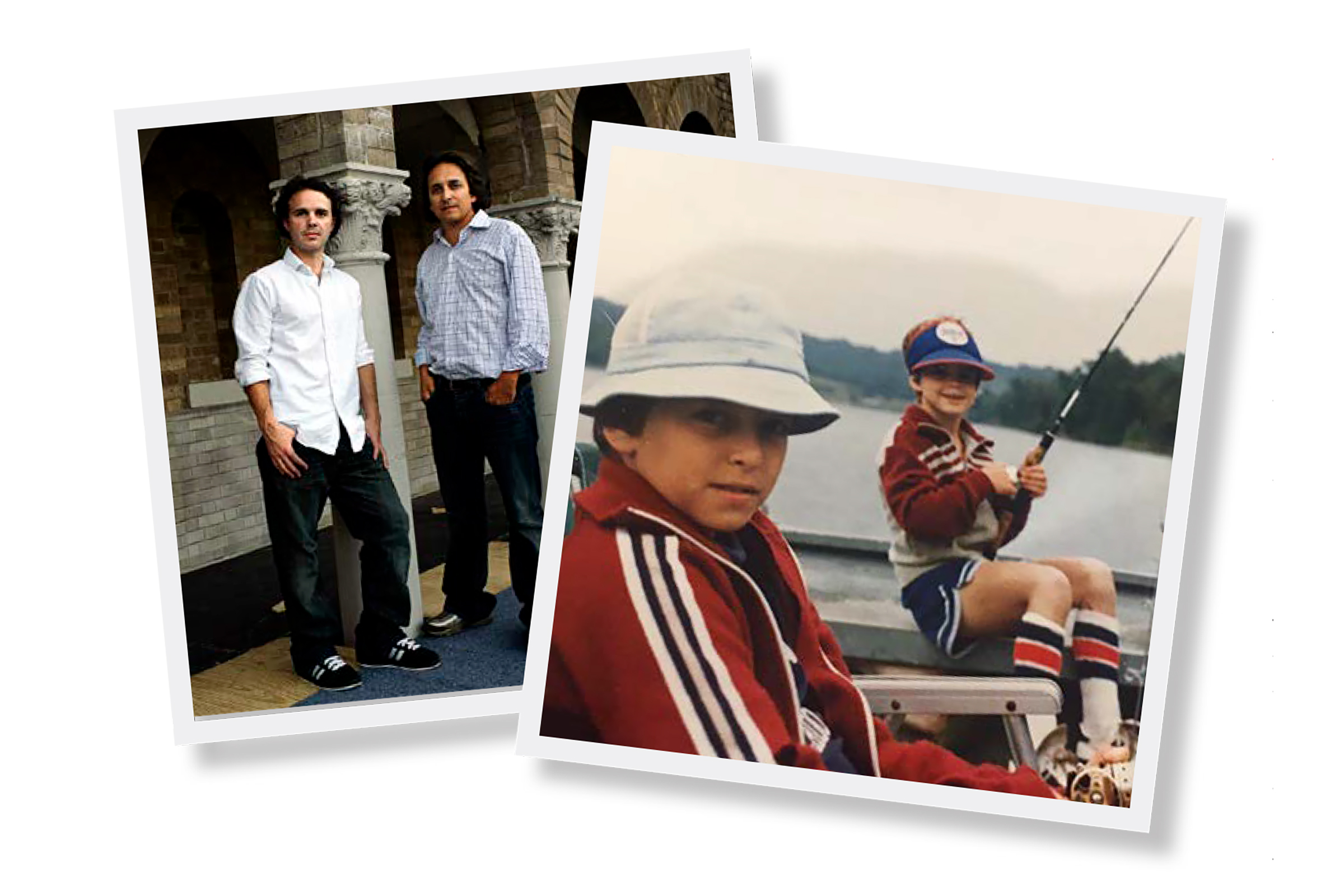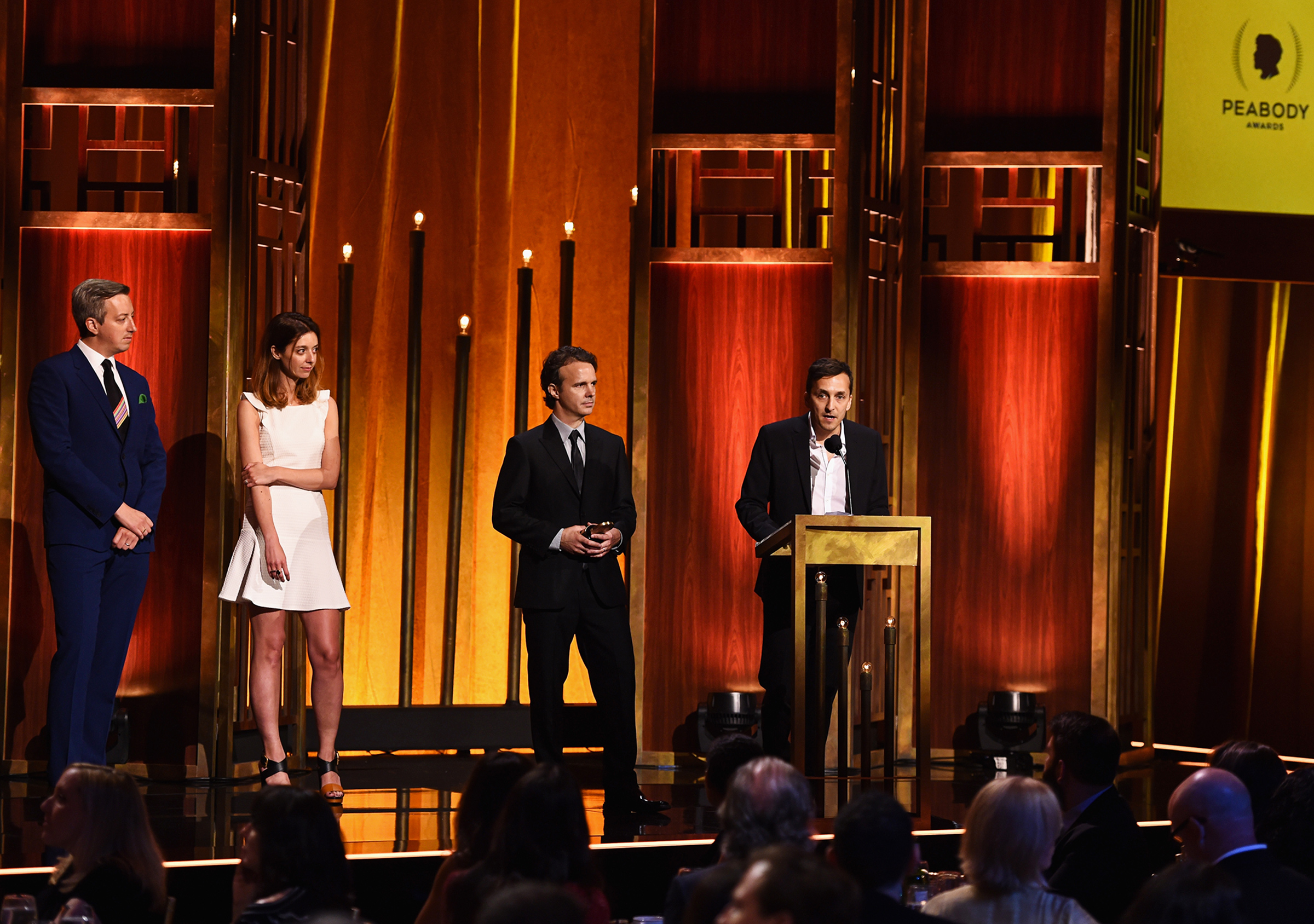
I studied anthropology in college, and was living with an Indigenous tribe in Costa Rica when I realized I wished I had a camera. At the time, my big brother Brent had fallen in love with documentary film and was interning at Jon Alpert’s Downtown Community Television Center. Before long, I’d moved from Oregon to Brent’s New York apartment, sleeping on a lawn chair until it broke. Then I moved to the couch.
We worked with Alpert for years and, after 9/11, often in conflict zones. Neither of us was chasing adrenaline. Our projects were always driven by characters, people who did not have a voice and found themselves in extreme situations. We worked in Haiti, in Juárez, and in a Chicago high school for kids who had been kicked out of every other school. To make Dope Sick Love for HBO, we took turns living for days at a time on the street with two heroin-addicted couples, ferrying in fresh camera batteries. When the National Guard from our home state of Arkansas deployed to Iraq, one of us went along and one remained with families; calls home were filmed from both perspectives.
For Tipping Point, a documentary series involving TIME Studios, a producer sought us out to make an episode on refugees. We had already done a film following young men migrating from Central America, and navigated what everyone assumed would be the most dangerous place to work. Then Russia invaded Ukraine, and suddenly Europe had its largest refugee crisis since the 1940s. Having given up international travel after the birth of my son, my job was now support. Brent, with no kids, just up and went.

He was in Kyiv as Russian forces circled the city and Ukrainian civilians scrambled away. On March 13, he rode with his friend, the photographer Juan Arredondo, and a translator to a bridge. They were told there were also people crossing at a farther bridge. The translator did not want to go, so Brent and Juan hitched a ride with a civilian and were on their way toward not the front but the people fleeing it when they heard the first shot.
My phone rang at 5:30 a.m. Juan kept shouting, “We’ve been shot!” I said, “Where’s Brent?” He said, “He’s been shot too. I’ve been pulled away. He’s still there.” Had he been wearing his body armor? Yes. Had he been shot in the armor or in the face? No reply. That’s when I knew.
Later Juan told me he’d seen a bullet enter Brent’s neck. It had come in a fusillade from the roadside, which sounds like an ambush. Putin’s troops had been targeting journalists. And Brent, as the first American they killed, became a story himself.
The response has amazed me. Our family was moved by President Zelensky’s message that the people of Ukraine “are mourning with you.” What gives me the greatest heart, though, is how specifically and genuinely the people honoring Brent acknowledge the mission that drove him. A person who had devoted his life to telling the stories of overlooked people was slaughtered trying to reach them.
That is a story that needs to be told as well. My brother would be massively pissed if it were any other way. As I relate the contents of this article—speaking to a TIME reporter by phone from Warsaw, the first stop on the journey to collect my brother’s body—a camera is trained on my face. It’s held by a friend and colleague who rushed into the breach created by his death. We are going to make sure this story is seen.
—As told to Karl Vick
More Must-Reads from TIME
- How Donald Trump Won
- The Best Inventions of 2024
- Why Sleep Is the Key to Living Longer
- Robert Zemeckis Just Wants to Move You
- How to Break 8 Toxic Communication Habits
- Nicola Coughlan Bet on Herself—And Won
- Why Vinegar Is So Good for You
- Meet TIME's Newest Class of Next Generation Leaders
Contact us at letters@time.com